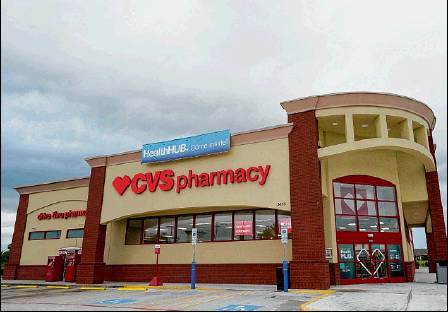PRESCRIPTION DRUGS
Audit: CVS failed to pass on rebates
After state criticism, pharmacy chain says it will cooperate fully
By Bethany Bump
Albany
CVS Health failed to pass on at least $2.2 million in drug rebate savings to New York from 2014 to 2018, according to a recent audit by the state Comptroller’s office.
The retail pharmacy chain had a contract to administer the prescription drug program for New York’s Empire Plan, a health plan that covers nearly 1.1 million active and retired state and local government employees. As part of the contract, CVS was required to negotiate agreements with drug manufacturers for various rebates and discounts, and to pass on 100 percent of those savings to the state Department of Civil Service.
But a review of rebate revenue obtained from at least six drugmakers revealed that CVS did not always invoice, collect or remit that revenue to the state, according to the audit.
“CVS Health and other pharmacy benefit services companies hired by the state are required to maximize drug rebates from manufacturers and give that money back to New York,” said Comptroller Thomas P. DiNapoli. “CVS Health needs to ensure that rebates are calculated correctly and that the state gets every dime it deserves.”
Auditors decided to review rebates from six drugmakers, and found they totaled $251 million of $935 million in total rebates CVS obtained during the bulk of its contract period (Jan. 1, 2014, to June 30, 2018).
The review found that CVS did not always dispute incorrect payments made by drug companies or collect all rebates due from them. It also found that CVS did not invoice or remit $403,652 worth of claims that were eligible for rebates.
For example, auditors found that CVS invoiced but did not collect $283,324 worth of rebates from a drug manufacturer after the company claimed they were for duplicate claims or abnormal quantities of drugs.
However, the state’s claim data “did not support what CVS officials told us about duplicate claims,” the report said, and nothing in the manufacturers’ agreements allowed drugmakers to exclude “abnormal” claims from rebates.
The review also found that CVS failed to collect and remit rebates in a timely manner. The pharmacy chain still owes New York $361,653 in outstanding rebates for 2017, the report says. An additional $2.3 million in outstanding rebates from 2016 and 2017 were paid after auditors raised questions about them.
CVS was ordered to pay the outstanding rebates to the state, and take steps to ensure timely processing, collection and remittance in the future.
The chain said Monday it’s reviewing the audit report and will respond to the recommendations within the 90-day deadline.
“We cooperate fully with such audits as part of our commitment to transparency with our clients, including the state of New York,” it said.
The audit report comes as CVS Caremark and other pharmacy benefit managers (PBMs) are under increased scrutiny for practices some argue contribute to skyrocketing drug prices.
Such practices include pocketing rebate savings as a way of boosting profits, rather than passing the savings down the line to plan holders, pharmacies and patients as originally intended. Additionally, because PBMs are partially reimbursed for any rebates they negotiate, critics contend they prioritize high-cost drugs that can earn them higher rebates over similar drugs that are more cost-effective for everyone.
Both New York and federal lawmakers are currently weighing legislation that would require PBMs to operate with more transparency, regulation and accountability.
• bbump@timesunion.com • 518-454-5387 • @bethanybump
